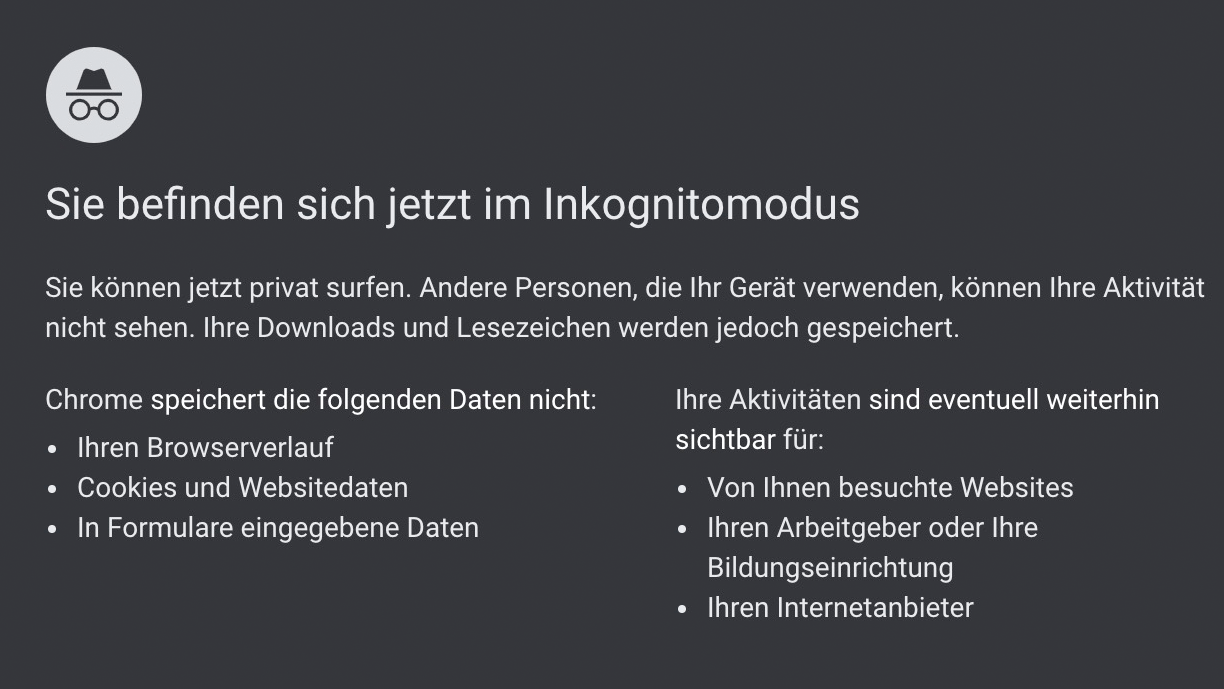Google has to face another US lawsuit over data protection. Some users have filed a lawsuit against Google because the group collects data even when users use Chrome’s incognito mode. Thus, Google has unlawfully interfered with the privacy of millions of users. Google filed the usual US request to halt proceedings. Responsible federal judge Lucy Koh has now rejected this.
This allows opponents to prepare for the main actions. Basically, it is about Google collecting data for user profiles across its own websites and countless third-party websites even if users activate incognito mode. It does not help against this form of data collection. Google takes a position that this is evident from the Incognito start screen and data protection terms. The users have agreed.
Neither the users nor the website operators have given their consent
Judge Koh unconvinced: Contrary to his own claim, Google has not shown that users agree to collecting the data. The information on the opening screen of Chrome is misleading. Even if users agree, it will be ineffective as data collection violates other laws, according to the lawsuit. It must be clarified whether the law has actually been violated in key proceedings.

Also regarding the website operators, and contrary to their assertion, Google has not indicated that they have tacitly agreed to collect data in Incognito browsers by entering Google code into their websites. It remains to be clarified whether Google has sufficiently informed the operator – because Google does not disclose in the incognito description that it itself continues to collect data. In general, tacit consent is not enough here either, because according to the lawsuit, Google is collecting data in order to incorporate it into user profiles, and that would be illegal anyway.
It’s about billions
The judge also does not accept Google’s argument that the allegations are prohibited by law. Each interception of data is a crime in itself and a new restriction period begins. In addition, the statute of limitations does not apply to fraudulent concealment. Finally, Google’s assertion that the plaintiffs did not make sufficiently specific claims is ineffective. In her decision, the judge listed four specific allegations against which Google will now have to defend itself in the main proceedings.
The plaintiffs believe that millions of Google users have been affected by the potential privacy breach. They placed a damages claim of $ 5,000 per user, which could ultimately add up to $ 5 billion. Google denies all allegations made.
Mills grind slowly
It remains to be seen whether the measures, as prosecutors have requested, can be implemented as a collective case for all Americans involved. A hearing on this is scheduled for January 20, 2022. The procedure is called Brown et al. Google et al It is under consideration in the US Federal District Court for Northern California under Reference 5: 20-cv-03664.
The process should not be confused with the lawsuit brought against Google by the same law firm in the same court Anibal Rodriguez et al. V. Google et al (Ref. 5: 20-cv-04688). There are also allegations against Google about misleading data protection settings, but it’s for the apps. Google also denies the allegations.
(s)

“Professional food nerd. Internet scholar. Typical bacon buff. Passionate creator.”





